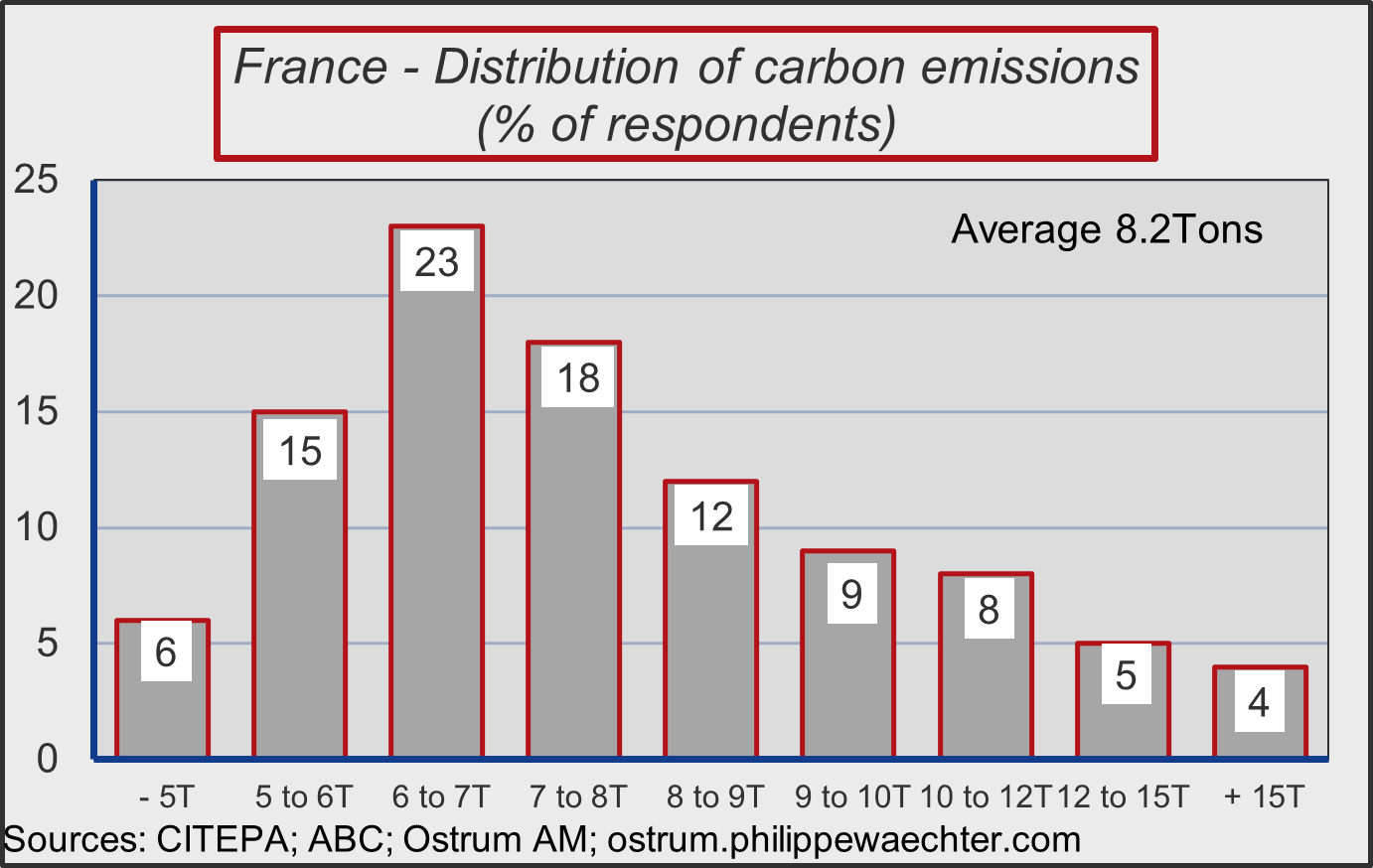Carbon footprint: 8 Tons is a lot or not?
In France, the average carbon footprint is around 8 tons (8.2T) per year per person.
This was the result of a survey conducted by CITEPA and the Association pour la transition Bas Carbone (ABC) between April 21 and May 10, 2023.
This is a difference with other studies taking the global footprint of France and then calculating the footprint per person. In the latter method, the impression is generally higher.
Several results emerge:
1- Variability between regions is very low. In all regions the emissions per person are on average very close.
2- On the other hand, within each region the volatility is strong reflecting the non perceptible microeconomic differences in the regional averages.
3- The distribution of emissions is centered on a footprint of 6 to 9 tons (53% of respondents). There are only 6% of the French emitting less than 5 tons of carbon per year and 4% emitting more than 15 tons. No French would have a footprint less than 3 tons
4- The greatest discrimination is that of income. Higher income translates into higher emissions but the movement is at diminishing returns. Euro-related additional income issues decrease with income level.
5- Transport accounts for 25% of the footprint, housing 18%, food 23%, administrative services 18% and a miscellaneous item (equipment and leisure goods) 16%. Transport and housing have weights that are increasing with income (explanation of point 4 for high incomes).
Concluding Remarks
On these carbon footprint issues, we all need benchmarks. Thus, for 40% of the respondents, their footprint is stronger than they estimated and 22% lower than expected.
This type of study increases knowledge of the complex environment of convergence towards carbon neutrality.
This gives us a measure of the transformation of our economy and our behavior, because to be in line with the Paris Agreement, we would have to converge on 2 tons, which would limit the rise in global temperature by 2°C above the pre-industrial average.
We need to make major changes to our energy supplies, to increase the decarbonization of our economy and our behavior and habits.
_______________________________________
Philippe Waechter is chief economist at Ostrum AM in Paris




